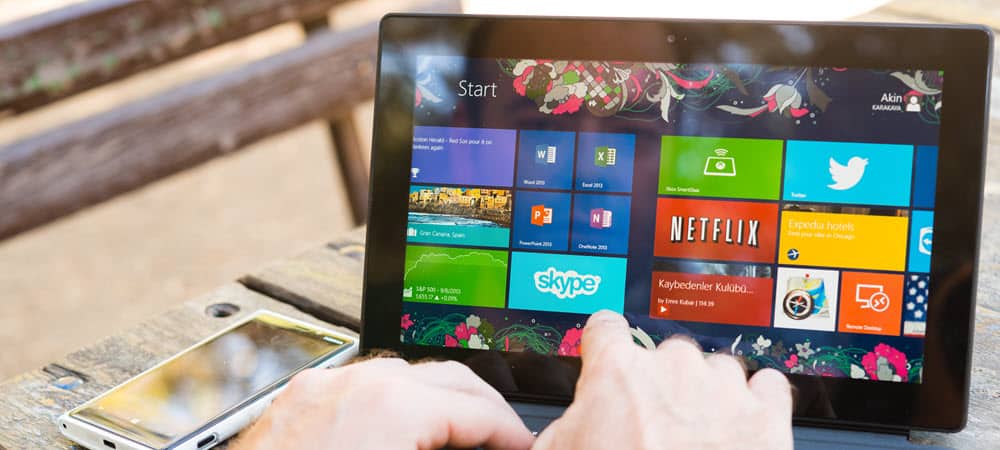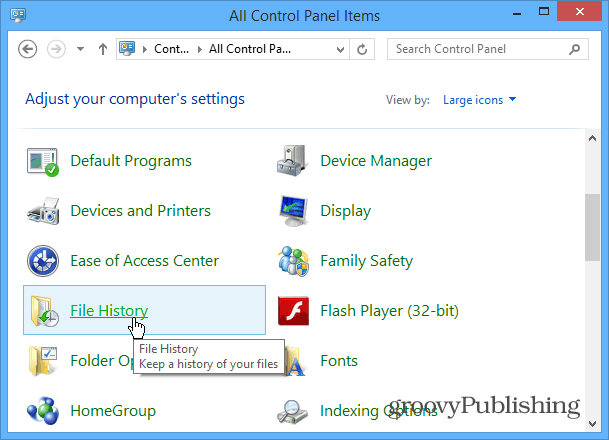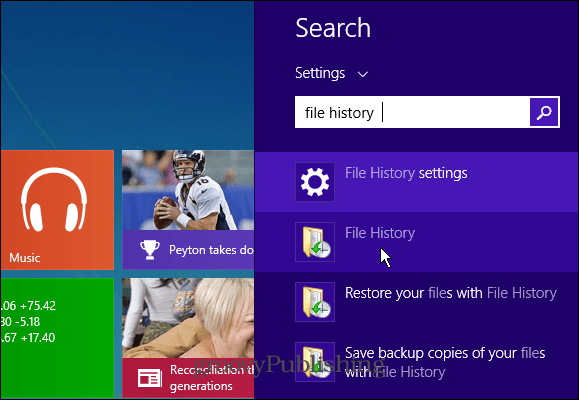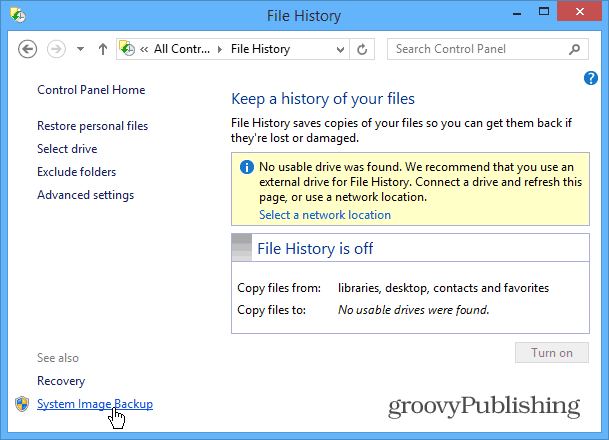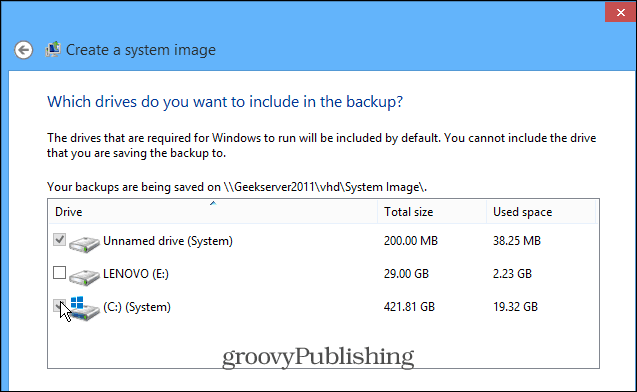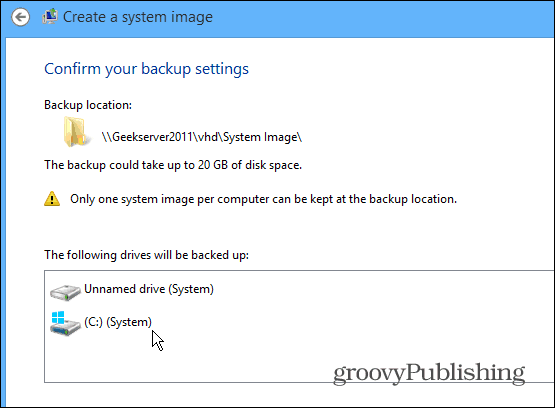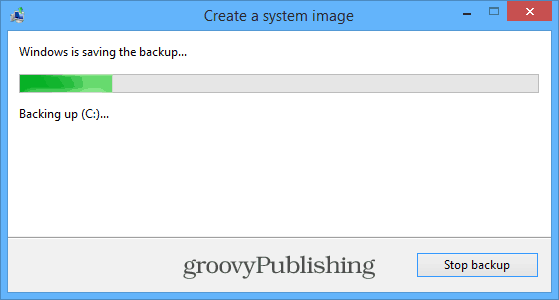Before starting, make sure you have an external drive connected, network location, or go old school with a blank DVD available.
Create a Windows 8.1 System Image
Now System Image is located in File History. So open the Control Panel on the desktop – not the metro version – and click File History. Go to File History control panel, lower-left corner click “System Image Back Up.”
If you want to use the modern interface, hit Windows Key + W to set up Setting search and type in file history, and select it under the results.
Next, click on System Image Backup, located in the lower-left corner of the screen.
Now, just like in previous versions of Windows, follow the wizard to create the system image. In this case, I’m backing up to my Windows Home Server.
After selecting the backup location, verify the drives and/or partitions you want to include.
After that, confirm your backup settings.
Now wait while the System Image is created and backed up, and you’re done!
Summing Up
I find that the best time to create a system image is after a clean install or after you get everything set up how you like it on a new computer. Then when you want to do a clean install, you’ll be able to revert everything to how you like it. Remember, Windows 8 has two new PC Reset and PC Refresh features that allow you to recover your system if something goes awry. Both of those features are still available in 8.1. But if you can’t get to those features for some reason, you’ll be set. Also, while you’re at it, you might as well create a USB Recovery Drive. That will allow you to boot from the flash drive. And restore a system image if you have a hard drive crash. If you’re not on Windows 8 yet, check out our article on how to create a Windows 7 System Image. Windows 8.1 will be a free upgrade to existing Windows 8 users through the Windows Store. Microsoft confirmed it would be released on October 18th. 20131130 No prompt for selecting drives to be backed up as depicted in section ‘Which Drives Do You Want To Include In The Backup’. Arbitrarily chooses 3 drives: EFI System Partition; OS (C:) System; Windows Recovery Environment (System) Backup fails at 78 seconds with message ‘The version does not support this version of the file format (OxC03A005)’ Failure while backup of EFI System Partion (Extensible Firmware Interface) active. I tried to do a system image backup on to my wifi network drive with a Linksys AC Router, and it repeatedly does not work. It says there was an error writing to my drive. File History works better. I do not know why they would say it is ‘strongly’ recommended to back up the system image, have a boot thumb drive, and then not make this feature bug free. I am not interested in using the old school optical drive to save a system image. I wanted to use the thumb drive. But, am not sure about whether to put the boot utilities only on the thumb drive or the system image. I am confused on why windows 8.1 crashed on my hp computer, and how to reliably backup the system image, and do not understand how to recover windows 8.1 Pro, without giving in and just reinstalling everything from scratch. -Duane -Duane The size if around 6 GB which is about right I think. I did this on two tablets. Comment Name * Email *
Δ Save my name and email and send me emails as new comments are made to this post.
![]()
